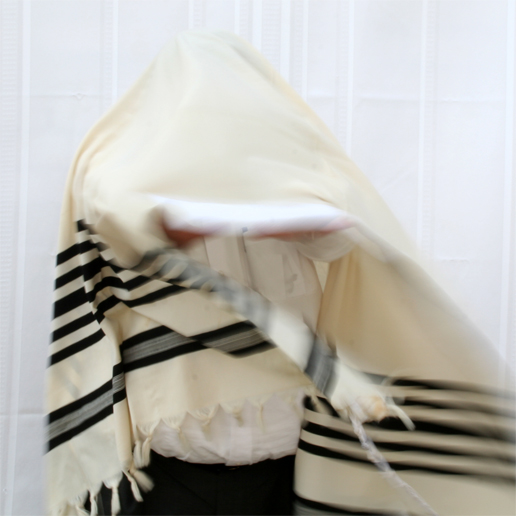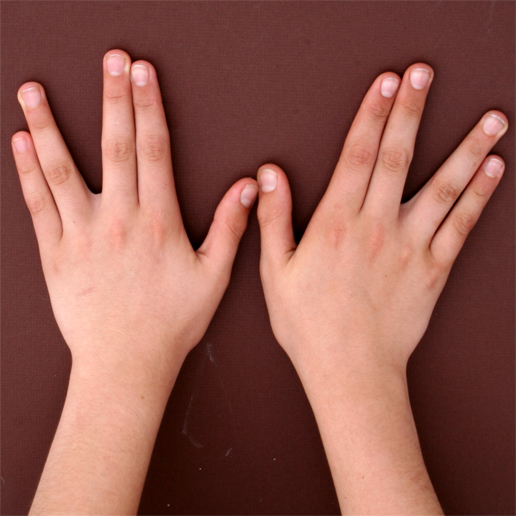|
| SHOP | • | ARCHIVE | • | MKH NEWS | • | PFI | • | SHOPPERS' UPDATE | • | HOME |
| MY LIFE |
|
|
| MY SIMCHA |
|
|
| MY YEAR |
|
|


BIRCHAT KOHANIM: WHY DO THEY SPREAD THEIR FINGERS LIKE THAT?
Birchat Kohanim is
counted as one of the 613 mitzvot. It is a mitzvah for the Kohanim to
bless Bnei Yisrael every day, both in Eretz Yisrael and in Chutz
La’aretz, the Diaspora. However, the custom for Ashkenazim has evolved
that Birchat Kohanim only takes place on Yom Tov. The Sefer Hachinuch
explains this mitzvah in a fascinating manner. Hashem, in His love for
the Jewish people, wants to bless them daily. The vehicle for this
blessing should be people whose whole life revolved around serving
Hashem. In the time of the Mishkan and the Beit Hamikdash these were
the Kohanim. The Kohanim would come to this holy place for weeks at a
time to serve Hashem. Their whole day was spent doing the avodah and
eating from the holy sacrifices. This caused their thoughts and actions
to be. permeated with the closest relationship and strongest bond to
Hashem.
Getting back to our original question, the source for the Kohanim to spread their fingers apart comes from a Medrash Tanchuma. The Medrash speaking figuratively, records a conversation between the Jewish people and God. When Bnei Yisrael heard that the Kohanim were to bless them, they questioned this and said we want Hashem Himself to bless us. Hashem responded that even though He commanded the Kohanim to bless the Jewish people, He would be standing, so to speak, with them. The Medrash continues, therefore the Kohanim spread their fingers as if to say that Hashem is behind us and His presence comes out between our fingers as through windows in a wall.
As a very interesting digression, the Sefer Hachinuch that we mentioned above asks that if Hashem truly wanted to bless His nation daily, why does it have to be done through the Kohanim? Hashem can just bless His nation directly. The answer the Sefer Hachinuch gives is a fundamental lesson in Jewish philosophy. God, in His love for His people wants the best for us. On one hand, He wants to shower us with blessing, on the other hand, we have to do our part to receive those blessings. Hashem set up His world in such a way that the blessings are there ready to be taken. All we have to do is to prepare ourselves, ask for them and then take them. Through the mitzvot and our actions, we make ourselves worthy and fit to receive these brachot. Then we have to ask for the Brachot. This is how Birchat Kohanim works. The Kohanim through performing their mitzvah of blessing the people, bring Hashem’s blessing to us.
In the Beit Hamikdash, the Kohanim would wash their own hands before Birchat Kohanim. Today, of course, the Leviem wash their hands. There are two reasons given: The Zohar says that the Leviem are also called “holy”, therefore they were given this honor. The other answer is that this is a zicharon or remembrance of the Beit Hamikdash. In those times the Leviem served under the direction of the Kohanim and therefore, so too today do they serve in the same capacity.
The bracha that the Kohanim make before blessing the congregation concludes with the words, ”…to bless Yisrael with love.” The Zohar writes that during the blessing, the Kohanim should try to feel their love for the congregation and in turn the congregation should try to feel their love for the Kohanim.
The halacha states that in order to ensure full concentration on receiving the Brachot, when the Kohanim are giving the blessings one should not look at their hands. Rather, a person should have his eyes looking down. The Kohanim in turn, cover their faces so they can concentrate on giving the Bracha. There is a common misconception that the Shechina resides on the Kohanim’s hands and if they are viewed will cause a person to lose their eyesight. This was true in the Beit Hamikdash, however, today; without the Beit Hamikdash and its holiness it is not true. Because of this misconception, many people turn their backs on the Kohanim. This is not a proper custom. One should not turn his back on a person giving them a bracha.
In the Beit Hamikdash the Kohanim would bless the people using the full name of Hashem - yud—hey—vav—hey - as it is pronounced. The people would not answer amen, but rather would wait until all three brachot were concluded and then say the phrase, “Blessed is God, the God of Yisrael, forever and ever.” May the time come soon when we are able, once again, to receive the Blessing of the Kohanim in the Beit Hamikdash as we once did long ago.
Rabbi Eliezer KesslerGetting back to our original question, the source for the Kohanim to spread their fingers apart comes from a Medrash Tanchuma. The Medrash speaking figuratively, records a conversation between the Jewish people and God. When Bnei Yisrael heard that the Kohanim were to bless them, they questioned this and said we want Hashem Himself to bless us. Hashem responded that even though He commanded the Kohanim to bless the Jewish people, He would be standing, so to speak, with them. The Medrash continues, therefore the Kohanim spread their fingers as if to say that Hashem is behind us and His presence comes out between our fingers as through windows in a wall.
As a very interesting digression, the Sefer Hachinuch that we mentioned above asks that if Hashem truly wanted to bless His nation daily, why does it have to be done through the Kohanim? Hashem can just bless His nation directly. The answer the Sefer Hachinuch gives is a fundamental lesson in Jewish philosophy. God, in His love for His people wants the best for us. On one hand, He wants to shower us with blessing, on the other hand, we have to do our part to receive those blessings. Hashem set up His world in such a way that the blessings are there ready to be taken. All we have to do is to prepare ourselves, ask for them and then take them. Through the mitzvot and our actions, we make ourselves worthy and fit to receive these brachot. Then we have to ask for the Brachot. This is how Birchat Kohanim works. The Kohanim through performing their mitzvah of blessing the people, bring Hashem’s blessing to us.
In the Beit Hamikdash, the Kohanim would wash their own hands before Birchat Kohanim. Today, of course, the Leviem wash their hands. There are two reasons given: The Zohar says that the Leviem are also called “holy”, therefore they were given this honor. The other answer is that this is a zicharon or remembrance of the Beit Hamikdash. In those times the Leviem served under the direction of the Kohanim and therefore, so too today do they serve in the same capacity.
The bracha that the Kohanim make before blessing the congregation concludes with the words, ”…to bless Yisrael with love.” The Zohar writes that during the blessing, the Kohanim should try to feel their love for the congregation and in turn the congregation should try to feel their love for the Kohanim.
The halacha states that in order to ensure full concentration on receiving the Brachot, when the Kohanim are giving the blessings one should not look at their hands. Rather, a person should have his eyes looking down. The Kohanim in turn, cover their faces so they can concentrate on giving the Bracha. There is a common misconception that the Shechina resides on the Kohanim’s hands and if they are viewed will cause a person to lose their eyesight. This was true in the Beit Hamikdash, however, today; without the Beit Hamikdash and its holiness it is not true. Because of this misconception, many people turn their backs on the Kohanim. This is not a proper custom. One should not turn his back on a person giving them a bracha.
In the Beit Hamikdash the Kohanim would bless the people using the full name of Hashem - yud—hey—vav—hey - as it is pronounced. The people would not answer amen, but rather would wait until all three brachot were concluded and then say the phrase, “Blessed is God, the God of Yisrael, forever and ever.” May the time come soon when we are able, once again, to receive the Blessing of the Kohanim in the Beit Hamikdash as we once did long ago.
Houston, Texas
| SUBMISSIONS | • | ADVERTISERS | • | TERMS OF USE | • | PRIVACY |
| ARTICLE ARCHIVE | • | NEWSLETTERS | • | KEYWORD SEARCH | • | HELP | • | HOME |